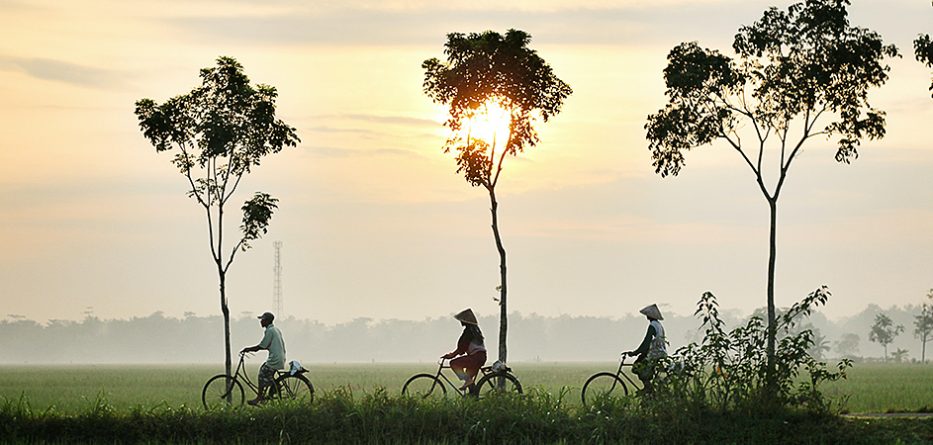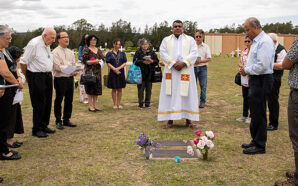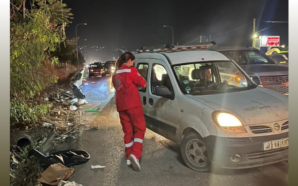Act justly, love tenderly, walk humbly: The potential of religions to motivate climate action
Paper presented at the 2020 Fireflies Dialogues
What Hope? What Action?…in the Anthropocene
Bangalore, 9-12 January 2020
Anne Benjamin
6. Religion and climate action: re-imagining, re-enchanting, acting together
What is the way forward? I do not know, but here are some suggestions for consideration.
1. We can re-imagine leadership
It is easy for leadership to be seen in narrow hierarchical terms; to be held hostage by flawed political models and those of large corporations. What would it look like if we were to accept models of leadership shaped by spiritual wisdom deriving from religion?
Margaret Wheatley wrote: In this chaotic world, … we do not need bosses. We need leaders to help us develop a clear identity that lights the dark moments of confusion, … to support us as we learn how to live by our values… to understand that we are best controlled by concepts that invite participation, not policies and procedures that curtail our contribution…We all have to learn how to support the workings of each other. (Wheatley, p 131)
Leadership, as a mode of acting which is value-driven, visionary and collaborative is a leadership formed in relationship with all individuals in the community and ecology in which a person lives and works, what some of my colleagues at Australian Catholic University have called transrelational leadership. (Branson et al) It is a leadership that calls people to their better selves and is accountable to the community which it serves and the ecology within which it operates.
In the midst of Australia’s current climate horrors, a deep anger is boiling over. Not just from the literary world, the environmentalists, political parties – the community as a whole is steeped in disgust for the failure – or inability – of our Prime Minister to show leadership during this crisis.
Many others have stepped into the breach – Fire Commissioners, other political representatives, community members, comedians, film stars, poets, literati and religious groups. There has been a flood of generous responses – from the young woman whose offer of land to stock displace animals turned into a network for coordinating all kinds of accommodation, to the comedian whose social media appeal for $36,000 raised $20 million. Sikh communities, Hindus, Buddhists and all Christian churches have responded with compassion, spontaneity and generosity.
However, the nation’s most senior elected leader seems incapable of finding the correct response. (Holidaying in Hawaii while the fires raged and whole towns burned, while men and women exhausted themselves protecting lives and property; who in September 2019 chose to attend the opening of a factory in the mid-west USA with Trump instead of the UN Emergency Climate Summit meetings in New York; who turned an announcement about support into a political advertisement, complete with jingle, at the height of the fires in the first week of January; seeming to ignore people’s distress, and so on.) The fires have become, not only a climate crisis, but a crisis of national political leadership.
At the international level, Fiji’s Prime Minister, Frank Bainimarama, expressed his frustration with the lack of leadership in international climate discussions.
… to be frank, I’m exhausted by the lack of accountability that comes from this type of tip-toeing. We don’t need to be scientists to know in our hearts that something is very, very wrong here. We know that things are getting worse. As the world gets hotter and drier, fires will continue to burn, landscapes and critical ecosystems will continue to be turned to ash, lives will continue to be lost.
Firefighters and rescue workers, he added, don’t have the luxury of sitting at conference tables when they are forced to risk their lives to contain these kinds of disasters. It is their sense of adrenaline-fuelled urgency, and their patriotic bravery to protect their homeland, that should inspire the world to act – and it is precisely that sense of heroic duty nations of the world must bring to the table. (Bainimarama)
Leaders should not be expected to have answers to the issues that confront a society, least of all, an issue as complex and large as the climate crisis. However, we expect – and should expect – that leaders:
- are present – physically and empathically – to those affected by the crisis,
- can articulate what is happening, name the demons that are being faced, name the pain, name some hope beyond,
- build collegiality, cooperation and teamwork as the community works toward a shared vision,
- strive to align a group’s identity to its wider reality, its ecology and its demands; resource the community to look to the future, to see possible challenges and what is necessary to meet them and work together with the community to create its future. (cf Branson et al)
2. We can re-claim leadership
Religions are ideally placed, along with poets, scientists, dreamers and activists – to re-imagine and exercise leadership right now when and where it is needed. Religions have the language and concepts of community, service and vision that can call out such leadership and sustain it.
Will religions, however, go the next step and claim that leadership? And call out our political leaders (and others) to a different kind of leadership? After all, Australia elected our current Prime Minister just seven months ago; and he himself is an active member of one evangelical church. Former Prime Minister, Tony Abbott, an active Catholic, outraged many listeners to Israeli radio on 31st December 2019, when in the midst of the fire crisis, he denied that carbon dioxide was driving global warming and claimed the country was in the grip of a climate cult.
Many initiatives for social action arise from church groups and religiously-inspired individuals. There is a healthy sense of action for social justice on issues such as asylum-seekers and the environment. And nationally, church and religious leaders are quite clear in their public statements. At the same time, religious groups in Australia are, on the whole, fairly tame and domesticated when it comes to politics. (They are also quite elderly, but I don’t agree this necessitates conservatism.) So, it cannot be assumed that members of religious communities will vote out fossil-fuelled politicians and vote in climate champions. (David Marr)
3. We can re-imagine a new polity with new relationships
Political processes in the West are flawed, but the protest against them has delivered people like Donald Trump. Can religions and Indigenous groups demand a new polity? One that is shaped by a sense of service for the common good? Where is our heart and our imagination to respond humanely and intelligently?
Our Pacific neighbours can teach us much about relationships. Let me tell a story.
Pacific countries are island countries. One is Tuvalu – the fourth smallest country in the world – a group of nine tiny islands in the South Pacific, 26 square kilometres in area, with a population of 11,200. Five of the islands are coral atolls, the other four consist of land rising from the sea bed. The highest point in the country is 4.5 metres above sea level. For years, Tuvaluan politicians, and especially the recent former Prime Minister, Enele Sosene Sopoaga, has spoken ardently on climate change and its impact on the country. Kiribati is another island state comprising coral atolls and one coral island. For years now, the waters have been rising and Kiribati is sinking into the ocean. Another larger nation is Tonga, a monarchy or around 100,000 living on 170 islands across 748 square kilometres, they too are threatened by climate change.
In August 2019, the leaders of Pacific Islands met in a Forum on Tuvalu. The Australian and New Zealand Prime Ministers attended. Australia virtually harpooned the discussions with an attitude that was hard-line, colonialist and lacking in compassion and empathy. Tuvalu’s PM Sopoaga pleaded with our PM; the Tongan PM reportedly wept at his intransigence. And the final statement was a bitter compromise.
Yet, in response to the current bushfires in Australia, Pacific leaders have responded with graciousness, compassion and generosity. With prayers (the Pacific is strongly Christian), even with money, (Vanuatu donating $250,000), and with firefighters (Papua New Guinea has 1000 men on standby). And Fiji’s Bainimarama exercising his own international leadership by adding the proviso, that prayers alone will not turn back the tides of the climate crisis facing the world; for that, we need meaningful action. (Bainimarama)
Two models of political relationship: which attitudes are those that more closely characterise the relationships reflected in religious literature and norms?
There are other relationships that religious groups can re-consider, notably that between human society and the world we live in. Religion’s voice is a significant one to add to any moral discourse that embraces the ecology in which we live.
4. We can search for shared language between religions and philosophies
Can religious groups continue to take up the challenge offered by SI and other documents and continue to engage in dialogue to find our common ground? Not just at the organisational levels, but individually and in communities of fellowship, between professional disciplines, civil society and the general community? It is time for religion to come out of the closet, especially in societies such my own, where religion can be derided publicly even though many people are active in their faiths. The religious voice needs to be heard in public debates; just as religious ears needs to hear the voices of those in the public square.
The voices are there, and not only can we listen, but religion has a responsibility to create space so they can heard and understood: for example, the school children who led us onto our streets, despite politicians criticising them and telling them to stay at school. (In March 2019, 150,000 people took part in climate action; on 20 September 2019, over 300,000 people in 100 cities and towns across Australia took part.) Or scientists and journalists who have spoken out and who continue to do the measured research and speak out about climate change, for example, the destruction of the Great Barrier Reef – surely a canary in the coal mine for the climate crisis – or about the flawed-half-accuracy of government reports on how well we are doing.
There is a simple companionship and solidarity we can draw from each other, in sharing our sense of powerlessness, and in finding our way forward. And we will need each other to do so.
5. We can seek out old wisdom and adapt it to our context
Let me put to you two scenarios.
Scenario 1: Beneath modern Melbourne, researchers, led by an aboriginal scholar, are drilling into five remnant billabongs trying to re-imagine and document the cultural landscapes, as they were prior to British invasion and under Aboriginal management. They work with the traditional owners and elders of the Wurundjeri Woi Wurrung people to analyse the sediment from the traces of pollen, and layers of charcoal and organic matter, to identify the DNA of lost creatures and micro-organisms, searching for clues about traditional Indigenous practices in burning and managing the site that could be used in the future. The site was, as one elder said, shaped over millennia by Wurundjeri Woi Wurrung beliefs, traditions and land management. We call it caring for country today, but it’s caring for our mother … she nurtured us, she nurtured our ancestors and she’ll continue to nurture us if we look after her in the way that she’s been looked after for tens of thousands of years. (Banister)
In another report from the current bushfires, there are reports that where Aboriginal cultural burning has been implemented, homes and property have remained protected. (Archibald-Binge) Elsewhere, Aboriginal people are offering their traditional wisdom and knowledge. (Allam)
Scenario 2: In Queensland, a few years ago, government experts raised repeated warnings about the long-term sustainability of groundwater extraction at a particular property. Cherrabah is a severely drought-stricken area. The river is virtually dry. The community is on water rations and is at risk of running out completely. At the same time, the government has given approval to a Chinese-owned company for a bottled-water extraction plant which will process 96 million litre water a year. In another part of Queensland, the government is buying extracted water back from Coca Cola because there is insufficient water for the residents. (Smee)
Wisdom: considered, discerning reflection in a wholistic way, guided by sound moral principle. Where is it?
7. In conclusion: nurturing a sense of ecological conversion for sustained climate action
The call to climate action is a call to ecological conversion, with its concomitant call to recognise our failures and seek a change of heart. It is easy to point the finger: I can shift blame but not my responsibility.
For a religious person, conversion can be framed in the question, What does the Lord ask of me? The Abrahamic scriptures offer many points of counsel for those who recognise the need for a change of heart in human interactions with their world. One such is found in the words of the prophet Micah, a minor Hebrew prophet active around 700BCE, who warned of the destruction of Jerusalem. In Chapter 6, Micah answers this question directly: You have been told, O mortal, what is good, and what the Lord requires of you –
The answer could well provide a blueprint for climate action: To act justly, love tenderly, and walk humbly with your God. (Micah 6:8)
To act justly: towards all people, including future generations, without exploiting either people or the natural world; to treat all of creation, of which each person is a part, with respect and reverence; to have special regard for those who are less privileged and more vulnerable; to discern wisely for the common good.
To love tenderly: or in other translations, to love goodness, to love kindness or to love mercy; to go gently into our interactions with children, women, men, all living creatures and species and the earth itself; to pause and create space in our lives so that we can be present to the mystery deep down in things, and have space for wonder, the poet Gerard Manley Hopkins wrote in “Pied Beauty” –
For skies of couple-colour as a brinded cow;
For rose-moles all in stipple upon trout that swim;
Fresh firecoal chestnut-falls; finches’ wings;
Landscape plotted and pieced-fold, fallow, and plough;
And all trades, their gear and tackle and trim.
Or Rabindranath Tagore in “Fruit Gathering” –
I have kissed this world with my eyes and my limbs;
I have wrapt it within my heart in numberless folds;
I have flooded its days and nights with thoughts
till the world and my life have grown one, – and I love my life
because I love the light of the sky so enwoven in me. (LIII)
To walk humbly: discarding forever the arrogance of ways that have led to this crisis in creation; to be simple and unpretentious in our ways of living and using. If there is to be a future for this world as we know it, we would be wise to go into it humbled.
We need to support each other – in our local communities and in our communities of interest, across disciplines and all boundaries, encouraging us to remain committed…Faith-filled about our future.
What does the Lord ask of you? I ask myself.
You have been told, O mortal, what is good, and what the Lord requires of you – to act justly, love tenderly, and walk humbly with your God upon the earth. (Micah 6:8)
Anne Benjamin is a Sydney-based writer and educator. She was the Executive Director of Catholic Education Diocese of Parramatta.
To read Part 2 of Anne’s address, click here.
To read Part 1 of Anne’s address, click here.








